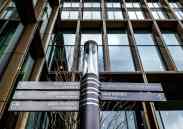As Washington continues to make efforts to deliver another COVID-19 relief package, one big sticking point has been a liability shield from coronavirus-related lawsuits for businesses and other organizations.
Senate Majority Leader Mitch McConnell for months has said the Senate would not pass another aid package if it doesn’t include liability protections.
The Kentucky Republican backed down on that demand somewhat on Tuesday, saying he would relent as long as Democrats pause their push for more funding for state and local governments in the next measure. But Senate Minority Leader Chuck Schumer, the New York Democrat, rejected McConnell’s proposal.
Related: Another COVID relief package looks likely before year’s end, analysts say
Also read: Here’s what’s included in the $908 billion bipartisan relief proposal
Trade groups, companies and other enterprises have engaged in significant lobbying on the liability issue this year, with 134 groups disclosing that they’ve lobbied on one bill that would provide a liability shield for businesses, universities, churches and other organizations — the Safe to Work Act. That’s according to a tally from OpenSecrets.org, a website tracking money in politics that’s run by the nonpartisan Center for Responsive Politics.
The scores of organizations that have aimed to influence Washington on this bill range from the U.S. Chamber of Commerce and the American Council on Education to the Service Employees International Union and the American Association for Justice, which was previously known as the Association of Trial Lawyers of America.
The chamber and many other trade groups voiced their support for the Safe to Work Act in a July letter to Congress, saying their “members and constituencies remain concerned that, despite doing their best to follow applicable government guidelines, they will be forced to defend against an onslaught of frivolous lawsuits.” In a similar vein, the American Council on Education and many other higher-education associations called for “temporary and targeted liability protections” in a May letter, adding that lawmakers “should preserve recourse for those harmed by truly bad actors who engage in egregious misconduct.”
Related: U.S. Chamber pushes for liability protections, scaled-back jobless benefits in next coronavirus bill
And see: Trump adviser Kudlow talks up limiting coronavirus liability for businesses
Meanwhile, the SEIU, the trial-lawyers group and many other associations expressed strong opposition to the Safe to Work Act in an August letter to top lawmakers. The missive said: “We urge you to reject this and similar immunity proposals and instead to focus on protecting workers, especially black and brown workers who bear the brunt of the coronavirus crisis, and provide the necessary safety nets to ensure that people can pay their rent and put food on the table.”
The Safe to Work Act, rolled out in July by Republican Sen. John Cornyn of Texas and co-sponsored by McConnell and other GOP senators, calls for liability protections for a five-year period. Negotiations between Republican and Democratic senators have centered in part on reducing the time period for any protections.
“Right now, both sides can agree that a ‘temporary moratorium’ (about six months) on lawsuits is ‘reasonable’ for businesses and individuals, but Republicans are seeking a long-term solution while Democrats are unwilling to make long-term commitments,” said Henrietta Treyz, director of economic policy at Veda Partners, in a note on Wednesday. “There is about a 20%-30% chance that Congress will reach a conclusion on this front in 2020; more likely, it will take them until 2021 to hash out a longer-term agreement.”
U.S. stocks
DJIA,
Now read: McConnell lashes out at Democrats as stimulus discussions stumble forward
This is an updated version of a report that was first published on Dec. 9, 2020.






